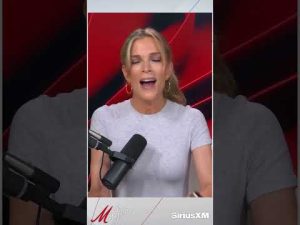In recent discussions surrounding popular media, a concerning trend has emerged that reflects a blatant push for progressive ideals, specifically within the realm of children’s entertainment. A recent viewing experience shared by Snoop Dogg brings this issue to light. While watching the 2022 Pixar film “Lightyear” with his grandson, he encountered a scene that left both him and the child perplexed: Buzz Lightyear’s best friend, Alisha Hawthorne, was shown with her wife raising a son. This moment sparked a vital conversation about the appropriateness of introducing complex and politically charged topics to young audiences who are simply trying to enjoy a film.
Snoop Dogg’s candid response highlights a critical sentiment amongst many parents today. He expressed bewilderment at how such scenarios are integrated into children’s movies. It raises an important question: why are films aimed at young viewers introducing concepts that do not align with some traditional beliefs? In this instance, the movie depicted a same-sex couple raising a child, which led to confusion for his young grandson. Children are subjected to these narratives without the capacity to question them fully, leaving parents to untangle the web of information that these productions sometimes present.
It is vital to recognize that children are not equipped to deal with these complexities at such a formative age. Snoop Dogg wisely pointed out that kids who watch these films are more focused on the excitement of the story rather than political agendas. By presenting complex and contentious topics like LGBTQ issues in children’s entertainment, the media may challenge the innocence of childhood and introduce potentially confusing ideas. The expectation that children should accept these narratives without question might not always align with individual beliefs.
Furthermore, Snoop emphasized the importance of parental guidance in addressing these issues. He firmly believes that it is crucial for parents to engage with their children and set the record straight when these messages arise. By presenting biological facts and reinforcing their understanding of family structures, parents can navigate these messages put forth by filmmakers. This approach champions personal responsibility, empowering parents to take charge of their children’s education in matters that should ideally be discussed within family contexts.
Ultimately, the portrayal of progressive themes in children’s media raises serious ethical questions for some. It is imperative to create space for children to simply be children, free from the weight of narratives that they are too young to fully understand. Snoop Dogg’s experience serves as a reminder that while supporting various narratives and identities is crucial, it must be balanced with clarity and understanding in our children’s lives. It’s time for parents and concerned citizens alike to engage actively and ensure that the innocence of childhood is maintained, allowing children to learn and grow in a manner aligned with family values.







